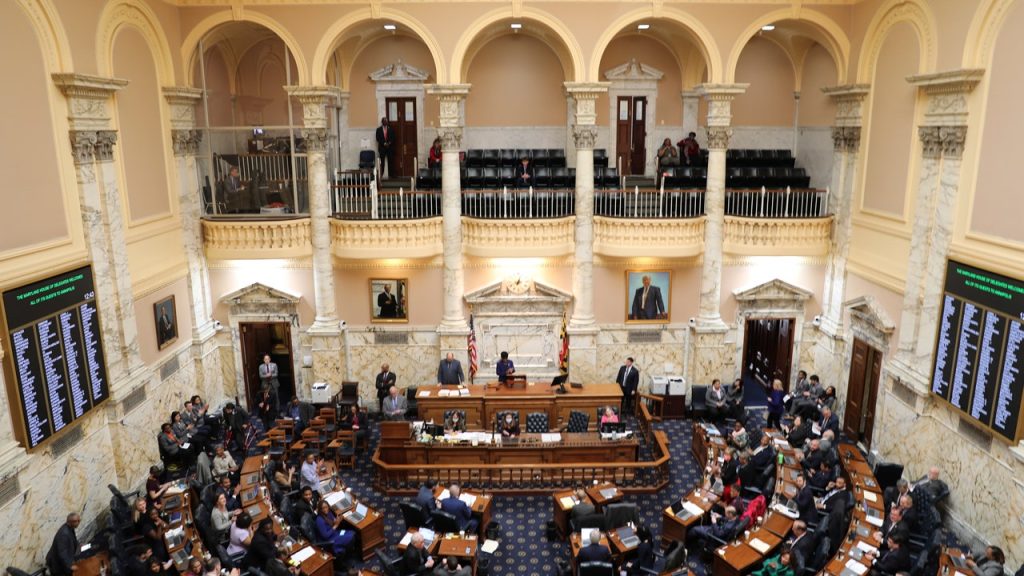Maryland’s Democrat-controlled Legislature has been busy pushing forward key legislation as the current session draws to a close. One of the top priorities for lawmakers is a measure aimed at assisting port employees affected by the collapse of Baltimore’s Francis Scott Key Bridge. This measure, known as the PORT Act, would authorize the use of the state’s rainy day fund to provide assistance to these employees. The collapse of the bridge on March 26 has had a significant impact on the Port of Baltimore, prompting lawmakers to act quickly in the final hours of the session.
Lawmakers are also working on other priority legislation, including a measure to rebuild Baltimore’s Pimlico Race Course, the home of the second leg of horse racing’s Triple Crown. This measure is still before lawmakers, who face a midnight deadline for adjournment. Governor Wes Moore has been vocal about the importance of this bill, emphasizing the significance of protecting the state’s history and future as well as the impact on the local community. Despite facing some uncertain prospects, lawmakers remain confident in their ability to make the right decisions in the final hours of the session.
Public safety measures have also been a focus of this session, with several high-profile measures already approved by the General Assembly. These measures aim to protect officials such as judges and elections officials, with some already sent to Governor Moore for approval. The state is also taking steps to address threats against election officials, which are on the rise across the country. Governor Moore has been actively lobbying for legislation aimed at making housing more affordable and addressing child poverty, highlighting the urgency of these issues amid a true housing crisis and increasing poverty rates.
Juvenile justice reforms have also been a key focus this session, with lawmakers passing legislation aimed at improving accountability and rehabilitation in response to rising crimes such as auto theft and handgun violations. One key provision of this legislation brings children ages 10, 11, and 12 into the juvenile justice system for certain offenses, with a focus on providing treatment and services rather than incarceration. The legislation also creates greater oversight of personnel and requires greater documentation when youths are detained.
Lawmakers gave final approval to the state’s $63 billion budget on Friday, agreeing to some tax and fee increases to help pay for education and transportation. However, revenue increases were less than some lawmakers had hoped for, deferring discussion about finding larger revenues to the next session in January. Despite these challenges, Maryland lawmakers have been focused on passing critical legislation to address the needs of their constituents and protect public safety. Governor Moore has been actively involved in advocating for important measures and is confident in the efforts of the General Assembly in the final hours of the session.


